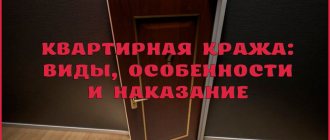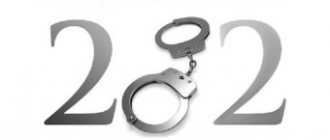Grammatical errors
A grammatical error is an error in the structure of a language unit: in the structure of a word, phrase or sentence; This is a violation of any grammatical norm: word formation, morphological, syntactic.
For example:
- slip instead of slip, nobility instead of nobility - here an error was made in the word-formation structure of the word, the wrong prefix or suffix was used;
- no comment, go instead of go, it’s easier - the form of the word is formed incorrectly, i.e. the morphological norm is violated;
- pay for travel, awarded - the structure of the phrase is violated (management standards are not followed);
- After skating on the skating rink, my legs hurt; In the essay, I wanted to show the importance of sports and why I love it - the sentences with participial phrases (1) and with homogeneous members (2) were incorrectly constructed, i.e. syntactic norms were violated.
Unlike grammatical errors, speech errors are errors not in the construction, not in the structure of a linguistic unit, but in its use, most often in the use of a word. These are mainly violations of lexical norms, for example:
- Stolz is one of the main characters in Goncharov’s novel of the same name “Oblomov”;
- They lost their only two sons in the war.
A speech error can only be noticed in context, this is what distinguishes it from a grammatical error, for the detection of which context is not needed.
Below are generally accepted classifiers of grammatical and speech errors.
Types of grammatical errors:
- Erroneous word formation - I'm , at you.
- Erroneous formation of a noun form - Many miracles of technology, not enough time .
- Erroneous formation of the adjective form - More interesting, more beautiful.
- Erroneous formation of the numeral form - With five hundred rubles.
- Erroneous formation of the form of the pronoun - Their pathos, their children.
- Erroneous formation of the verb form - They travel, they want, writing about the life of nature.
- Violation of coordination - I know a group of guys who are seriously interested in jazz.
- Impaired management - You need to make your nature more beautiful. Tells the readers.
- Violation of the connection between the subject and the predicate - The majority objected to such an assessment of his work.
- Violation of the way of expressing the predicate in individual constructions - He wrote a book that is epic. Everyone was glad, happy and cheerful.
- Errors in constructing sentences with homogeneous members - The country loved and was proud of the poet. In the essay I wanted to talk about the importance of sports and why I love it.
- Errors in constructing sentences with participles - Reading the text, you get this feeling...
- Errors in constructing sentences with participle phrases - The narrow path was covered with falling snow underfoot.
- Errors in the construction of a complex sentence - This book taught me to value and respect friends, which I read as a child. The man thought it was a dream.
- Mixing direct and indirect speech - The author said that I do not agree with the reviewer's opinion.
- Violation of sentence boundaries - When the hero came to his senses. It was too late.
- Violation of the type-temporal correlation of verb forms - freezes for a moment and suddenly starts beating again.
Reviews and comments
Now you can practice and find speech errors in this article or share other examples you know. Also, take a look at our literacy course.
We also recommend reading:
- Storytelling
- Learning your native language: a selection of useful materials
- Learning a foreign language: old rules about the main thing
- How to develop eloquence: some tips
- Our. Native. Russian.
- How to independently learn to write correctly in Russian
- Development of speech culture
- Six ways to learn from your mistakes
- Lukomorye, cat and literacy
- Recommendations for learning Russian
- How to learn to speak beautifully
Keywords:_D1048, _D1049, 1Russian, 1Storytelling
Speech errors
Types of speech errors:
- Typical grammatical errors (K9) Using a word in a meaning that is unusual for it - We were shocked by the excellent acting. The idea develops throughout the entire text.
- Failure to distinguish shades of meaning introduced into a word by prefix and suffix - My attitude to this problem has not changed. Effective measures were taken.
- Non-distinction of synonymous words - In the final sentence the author uses gradation.
- The use of words of a different stylistic coloring - The author, addressing this problem, is trying to direct people into a slightly different direction.
- Inappropriate use of emotionally charged words and phraseological units - Astafiev continually resorts to the use of metaphors and personifications.
- Unjustified use of colloquial words - Such people always manage to bully others.
- Violation of lexical compatibility - The author increases the impression. The author uses artistic >features (instead of means).
- The use of unnecessary words, including pleonasm - The author conveys to us with the help of artistic techniques. A very young man .
- The use of cognate words in a close context (tautology) - This story tells about real events.
- Unjustified repetition of a word - The hero of the story does not think about his actions. The hero does not even understand the full depth of what he has done.
- Poverty and monotony of syntactic structures - When the writer came to the editorial office, the editor-in-chief received him. When they talked, the writer went to the hotel.
- Inappropriate use of pronouns - This text was written by V. Belov. It refers to an artistic style. I immediately had a picture in my mind.
These are errors associated with the use of a verb, verb forms, adverbs, particles:
- Errors in the formation of personal forms of verbs : He is driven by a feeling of compassion
(should be: driven); - Incorrect use of tense forms of verbs : This book gives knowledge about the history of the calendar, teaches you how to make calendar calculations quickly and accurately
(follows: ...gives..., teaches... or...gives..., teaches...); - Errors in the use of active and passive participles : Streams of water flowing down struck the author of the text
(follows: flowing down); - Errors in the formation of gerunds : Having walked onto the stage, the singers bowed
(norm: coming out); - Incorrect formation of adverbs : The author here was wrong
(norm: here);
These errors are usually associated with violations of the laws and rules of grammar and arise under the influence of vernacular and dialects.
grammatical and syntactic errors include :
- Violation of the connection between the subject and the predicate: The main thing that I now want to pay attention to is the artistic side of the work
(norm: ... this is the artistic side of the work);
To benefit the Motherland, you need courage, knowledge, honesty
(norm: ... you need courage, knowledge, honesty); - Errors associated with the use of particles, for example, unjustified repetition: It would be nice if the artist’s signature was on the picture
;
separation of a particle from the component of the sentence to which it relates (usually particles are placed before those members of the sentence that they should highlight, but this pattern is often violated in essays): “ In the text of everything, two problems are revealed”
(the restrictive particle “total” should come before subject: “... only two problems”); - Unjustified omission of the subject (ellipsis): His courage, (?) to stand up for honor and justice attract the author of the text
; - Incorrect construction of a complex sentence: The author of the text understands intelligence not only as enlightenment, intelligence, but also the concept of “smart” was associated with the idea of freethinking .
Typical speech errors (K10)
These are disorders associated with underdevelopment of speech: pleonasm, tautology, speech cliches; unmotivated use of colloquial vocabulary, dialectisms, jargon; unsuccessful use of expressive means, clericalism, non-distinction (mixing) of paronyms; errors in the use of homonyms, antonyms, synonyms; polysemy not eliminated by the context.
The most common speech errors include:
- Non-distinction (mixing) of paronyms: In such cases, I look in the “Philosophical Dictionary”
(the verb to look usually requires the control of a noun or pronoun with the preposition “on” (“to look at someone or something”), and the verb to look (“ quickly or furtively look somewhere, look in order to find out, find out something”), which must be used in the above sentence, controls a noun or pronoun with the preposition “in”); - Errors in choosing a synonym: The name of this poet is familiar in many countries
(instead of the word known in the sentence, its synonym familiar is mistakenly used);
Now in our press a significant space is allocated for advertising, and this does not appeal to us
(in this case, instead of the word space, it is better to use its synonym - place; the foreign language word impresses also requires synonymous replacement); - Errors in the selection of antonyms when constructing an antithesis: In the third part of the text, a cheerful and not a major motif makes us think
(the antithesis requires precision when choosing words with opposite meanings, and the words “cheerful” and “major” are not antonyms; - Destruction of the figurative structure of phraseological units, which happens in an unsuccessfully organized context: Do not put a finger in the mouth of this undoubtedly talented writer Zoshchenko, but just let him make the reader laugh.
Types of errors in Russian
| Symbol | Error type | Explanation | Examples |
| I | Orthographic | Errors in the spelling of words (in roots, prefixes, endings), including in the placement of hyphens, in continuous and separate spelling. | Somehow (correct: somehow), exams (correct: exams), in a fur coat (correct: in a fur coat), ran away (correct: ran away). |
| V | Punctuation | Errors in the placement of punctuation marks (incorrect choice of punctuation mark, its absence in the right place or its presence where it is not needed). | The boy crouched under the branches of a tree and ran home - where his father, who had arrived from a business trip, was waiting for him. (The boy, bending down, crawled under the branches of the tree and ran home, where his father, who had arrived from a business trip, was waiting for him.) |
| G | Grammar | Errors in the formation of words and their forms, as well as in their choice (incorrect agreement in numbers, cases). | The most beautiful (the most beautiful or the most beautiful), the richer (richer), in accordance with the decree (according to the decree), payment for travel (payment for travel or fare). |
| R | Speech | Errors in the use of vocabulary (including paronyms, homonyms, synonyms), including tautology. | Diploma of the competition (diploma of the competition), price list (price list or prices). |
| WITH | Stylistic | Use of vocabulary that has an inappropriate stylistic coloring (usually colloquial, slang). Can be considered a type of speech error. | And then the main character of the story went crazy (that’s right: he made a mistake). This episode is cool (interesting, memorable). |
| Z | Violation of paragraph division of text | The text is incorrectly divided into micro-topics or paragraphs are not highlighted at all. | |
| F | Actual | The content of the text is distorted (when writing an exposition or essay) | Dubrovsky met Masha when he was robbing Troekurov (as it actually happened, I told you earlier). |
| L | Logical | Errors in the logical construction of the text (usually they are associated with a violation of the cause-and-effect relationship). This also includes syntactic errors that lead to a distortion of the meaning or its double interpretation. | Dubrovsky was a noble robber, so he decided not to rob Troekurov. (Dubrovsky was a noble robber, so he, having fallen in love with Masha Troekurova, decided not to rob her father.) There are many works about love in Russian literature. (There are many works about love in Russian literature.) |
Schoolchildren and their parents rarely have doubts about what kind of punctuation or spelling error was made in written work on the Russian language. Everything can be seen from the teacher’s corrections. But if speech, grammatical, logical and factual errors are detected in the work, questions arise.
The Federal Institute of Pedagogical Measurements (FIPI) has developed recommendations for language teachers checking students' test papers on the classification of errors that occur in these papers. You can download a classifier table with examples from the link.
Below you will find a brief description of typical errors, compiled on the basis of the “Methodological materials for chairmen and members of subject commissions of the constituent entities of the Russian Federation on checking the completion of tasks with a detailed answer of the Unified State Examination papers” and “Methodological recommendations for preparing for the final essay”. The last document concerns creative work (essays, presentations) that students complete in the winter for admission to the Unified State Exam.
Logical errors
Logical errors are associated with a violation of the logical correctness of speech. They arise as a result of a violation of the laws of logic, committed both within one sentence, judgment, and at the level of the entire text.
- comparison (contrast) of two logically heterogeneous (different in scope and content) concepts in a sentence;
- as a result of a violation of the logical law of identity, the substitution of one judgment for another.
Composition and text errors
- Bad start . The text begins with a sentence containing an indication of the previous context, which is absent in the text itself, by the presence of demonstrative word forms in the first sentence, for example: In this text the author ...
- Errors in the main part.
- Bringing together relatively distant thoughts in one sentence.
- Lack of consistency in presentation; incoherence and violation of sentence order.
- The use of sentences of different types in structure, leading to difficulty understanding the meaning.
- Bad ending. Duplication of conclusion, unjustified repetition of previously expressed thoughts.
Spelling, punctuation, graphic errors
Errors are taken into account when testing literacy (K7-K8)
It is also necessary to take into account the repeatability and uniformity of errors. If an error is repeated in the same word or in the roots of words with the same root, then it is counted as one error.
Graphic errors - various methods of abbreviating words, using spaces between words, various underlinings and font selections. These include: various clerical errors and typos caused by the inattentiveness of the writer or haste in writing.
Common graphic errors:
Source
Factual errors
Factual errors are a type of non-linguistic error, which consists in the fact that the writer cites facts that contradict reality, gives incorrect information about factual circumstances, both related and not related to the analyzed text (background knowledge)
- Distortion of the content of a literary work, incorrect interpretation, poor choice of examples.
- Inaccuracy in the quote. No indication of the author of the quotation. Incorrectly named author of the quote.
- Ignorance of historical and other facts, including time displacement.
- Inaccuracies in the names, surnames, and nicknames of literary characters. Distortions in the names of literary works, their genres, errors in indicating the author.
Important Note
As part of the school curriculum, the basic rules of the Russian language are studied, but not all. If an error is made according to a rule that students did not go through, it is corrected, but is not taken into account when evaluating the work. The teacher should do the same with graphic errors (obvious typos, clerical errors). We will talk in more detail a little later about how written works in the Russian language are assessed, for which mistakes the mark is reduced and by how many points, and which mistakes are not taken into account. The purpose of this article was to help you understand what errors there are in the Russian language, what type are those that the teacher discovered in a particular work. I hope I completed the task I set myself.
Share
- 2







